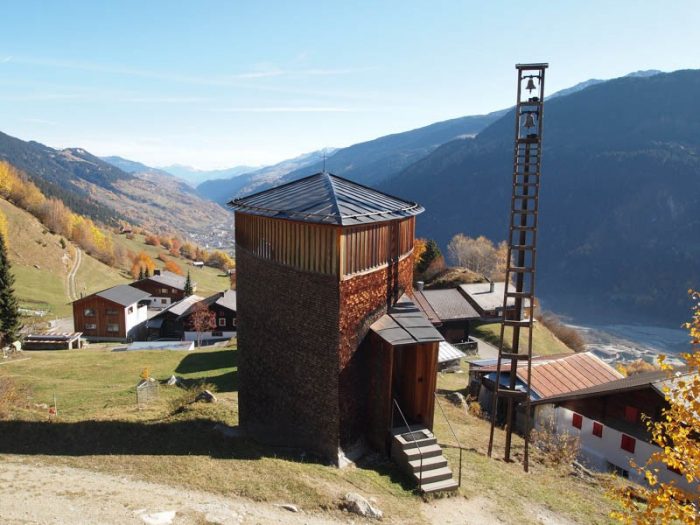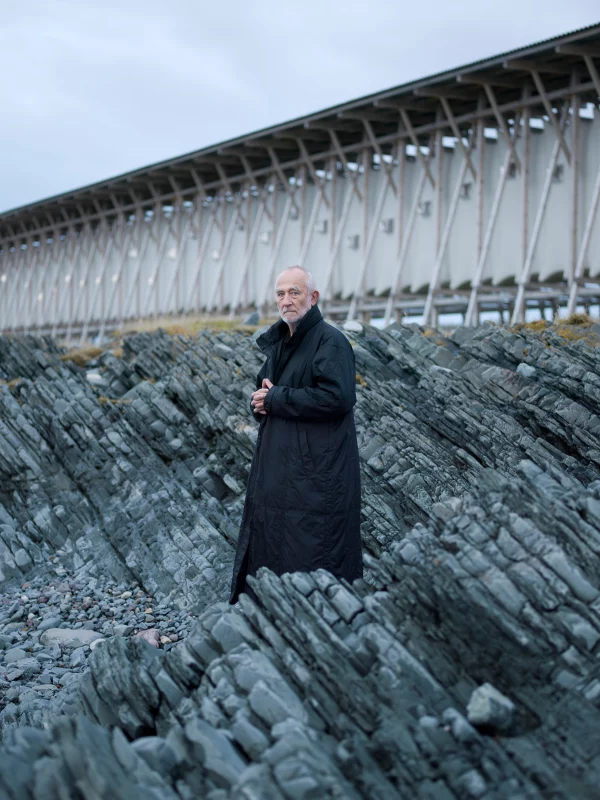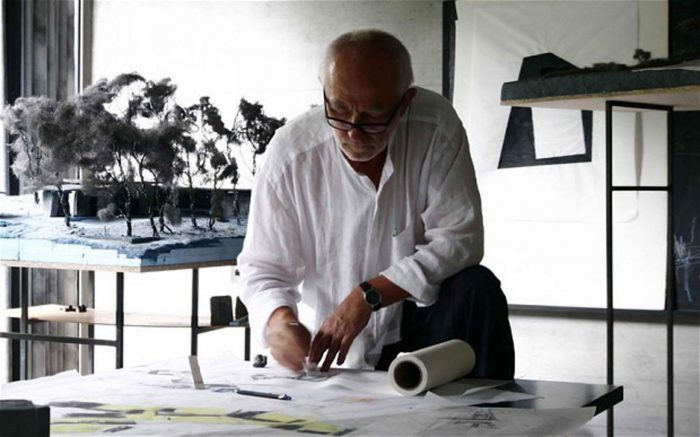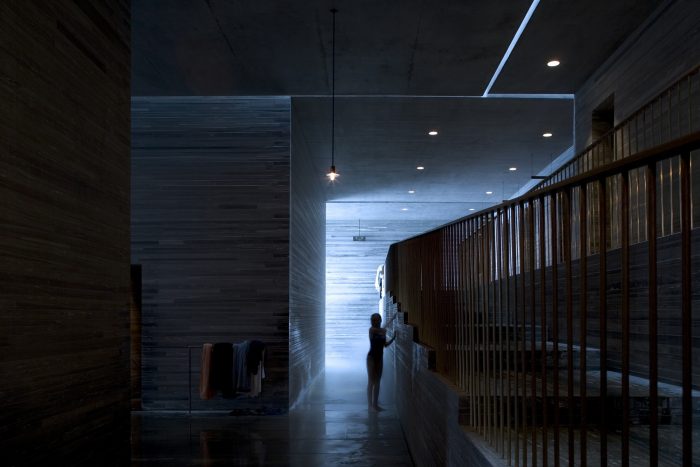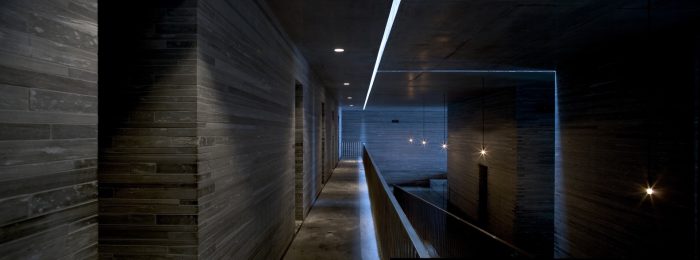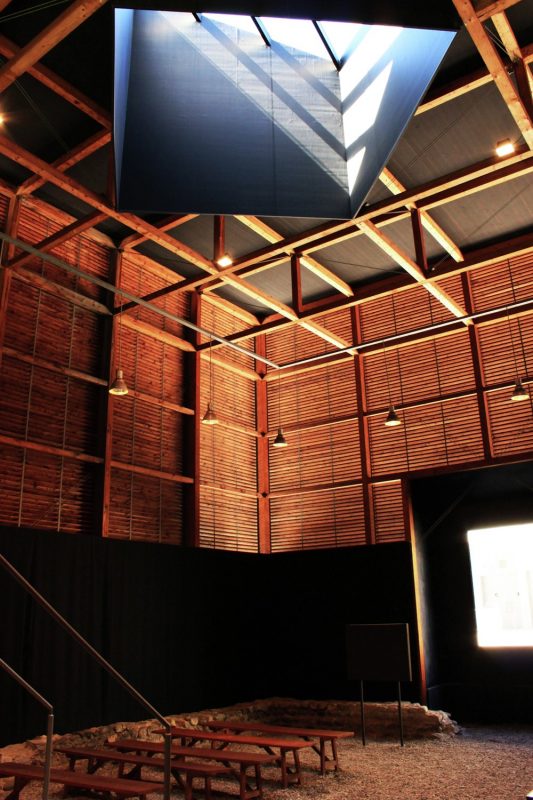The internationally acclaimed Swiss architect, Pritzker Prize Winner Peter Zumthor is considered one of the most admired architects of the 21st century. Zumthor’s most famous works include his Thermal Baths, Vals, and Saint Benedict’s Chapel. With his minimalistic approach, poetic insights, and inspirational talks, Zumthor has become an influential multidisciplinary architect.
Is Peter Zumthor a licensed architect?
6 Essential Lessons to Learn from the Genius Peter Zumthor
Here, we have gathered six crucial lessons Peter Zumthor taught us through his fruitful journey.
Lesson 1: Silence is the best answer
“Designing is a matter of concentration. You go deep into what you want to do. It’s about intensive research, really. The concentration is warm and intimate, like the earth’s fire – intense but not distorted. You can go to a place and really feel it in your heart. It’s actually a beautiful feeling.”—Peter Zumthor.
Zumthor spends most of his time working in his studio in the remote village of Haldenstein, situated in the eastern Swiss canton of Graubünden. He enjoys working in this secluded, quiet area without distractions and believes that his concentration is what leads him to discover the “true essence of a material.”
Also read:- 10 Architects from a Basic Architect Salary to the Richest in the World.
Only in silence, away from people’s constant hustle, can you thoroughly enjoy the two things Zumthor speaks about the most; Space and materials.
Lesson 2: Craftsmanship and Construction are an architect’s best friends
“Construction is the art of making a meaningful whole out of many parts. Buildings are witnesses to the human ability to construct concrete things.” ― Peter Zumthor.
A craftsman and an architect, Peter Zumthor, was raised by his craftsman father to prioritize the construction process. He was trained for five years as a cabinet maker before starting his studies at New York’s Pratt Institute.
“I believe that the real core of all architectural work lies in the act of construction. Concrete materials are assembled and erected at this point, and the architecture we have been looking for becomes part of the real World.”
“We actually never talk about form in the office. We talk about construction, we can talk about science, and we talk about feelings. From the beginning, the materials are right next to the desk; when we put materials together, a reaction starts. This is about materials, this is about creating an atmosphere, and this is about creating architecture.”
3. Lesson 3: Never underestimate the power of passion
Lesson 4: The Devil is in the Details
“Details, when they are successful, are not mere decoration. They do not distract or entertain. They lead to an understanding of the whole of which they are an inherent part.” -Peter Zumthor
Peter Zumthor has an eye for detail, and his ability to focus on the hidden beauty of materials gives a subtle richness to his work. This makes his work perceived as minimal yet never plain or incomplete.
Most of Peter Zumthor’s work is located in eastern and central Europe and is in a modernist or minimalist style. One of his most notable projects is his Thermal Baths in Vals, Switzerland, which reflects the beauty of natural materials and the detail of their textures.
His well-known Thermal Baths project consists of a maze of pools enclosed by concrete and stone mined from the surrounding hills. Like many of his architectural works, this project highlights the softness of wood, the concrete’s texture, and the stone’s rigidity. His work proves that an architect can achieve elegance without overestimated budgets and exaggerated formal gestures.
Lesson 5: A mind is a terrible thing to waste
“Normally, architects render a service. They implement what other people want. This is not what I do. I like to develop the use of the building together with the client, in a process, so that as we go along, we become more intelligent.” ― Peter Zumthor
Zumthor is the type of architect that thinks of architecture in a very artistic, poetic, and intellectual manner. He believes an architect must work on light and sound vibrations to create beauty. Consequently, he puts a lot of thought before producing any architectural work, yet still manages to keep it absolutely minimalist.
In his book “Thinking Architecture,” Peter Zumthor explains that air, lights, sounds, and materials are essential elements in his projects. For instance, he creates a link between the ruins and the city in the shelters for the Roman archaeological site in Chur. In that project, the building is a transitional element between the internal space and the city.
He says, “At the center of architecture, there seems to be an empty space. You can’t plan emptiness, but you can draw its boundaries, and so empty comes to life”.
Lesson 6: Landscapes and human beings are inseparable
“Every time I imagine a garden in an architectural setting, it turns into a magical place. I think of gardens I have seen, that I believe I have seen, that I long to see, surrounded by simple walls, columns, arcades, or the facades of buildings – sheltered places of great intimacy where I want to stay for a long time.“—Peter Zumthor
Zumthor envisions himself becoming a landscape architect someday. He is utterly obsessed with planting, gardens, and all aspects of nature.
“My relationship with plants becomes closer and closer. They make me quiet; I like to be in their company.”
Read more: Peter Zumthor: The Local that Went International.


